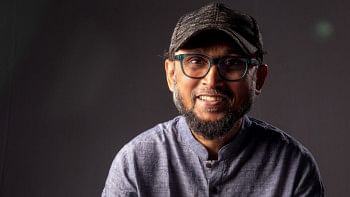Combating hate crimes on social media

Posting hatred comments and victim blaming after any incident specially in case of sexual crime against women have emerged vastly on social media particularly on facebook in Bangladesh nowadays. Often many people not only put their irresponsible comments publicly rather they spread hates among the community which may even instigate someone to do crime subsequently.
However, social media activities have been increasing enormously in recent couple of years in the country and huge populations from all classes of the society are being accustomed to operate it regularly. Not all are equally conscious to cross check the credibility of that detested comments or status posted by someone else. Sometimes, these insensible users also make it viral by sharing those kinds of posts without considering anything. Here lies the great danger of social media in a society like us. Hence, there is every possibility to bring disorder into the society; if the person who first put that sort of things on social media is not conscious about the consequences of his/her act.
However, as the spectrum of social media is increasing every day, hence it is not always practicable to monitor each comment and post every time. In addition, some incognizant people may post it without having any malice in mind and without knowing anything. Nevertheless, law enforcement agencies must be conscious in handling the trend to spread hate attacks and victim blaming after the happening of an incident. We only observe their vigilance when it came against the government and regrettably notice cases and other legal actions against free thinkers and bloggers instead of smear campaigners.
However, undoubtedly there are some people who intentionally not only spread hate on social media but also circulate their extremist views in various forms. Apart from instigating extremism, there are a lot of extremely offensive Youtube videos which contain speeches against equality of women in every sphere of life.
Nonetheless, one may argue that, we have constitutionally guaranteed freedom of expression and social media account is a platform to express opinion. Obviously, everybody has their personal view and s/he can operate his/her social media account according to his/her own wish unless it brings some harm to others. One in no way can spread hate or extremism for the sake of freedom and privacy.
Moreover, freedom of expression is neither unconditional nor unlimited both nationally and internationally. That very constitution which enshrined freedom of expression as a fundamental right itself inserts at least eight restrictions in exercising that right. Conversely, Article 19 of the International Covenant on Social and Political Rights (ICCPR) which ensures freedom of opinion and expression globally also has provision to reasonably restrict that right.
Nevertheless, if anybody commit any crime after getting inspiration from a hate campaign on social media then the person who first posted it or from whom that person came to know it would be liable as abettor. As according to section 107 of the Penal Code 'a person is said to instigate another when he incites, urges, encourages, provokes, counsels, procures or commands him to do something'. It is worth mentioning that the abettor will be responsible equally like the actual offender. Thus, it is evident that there is lawful way to combat these online campaigners.
Additionally, the much criticised section 57 of the Information Communication Technology Act, 2013 provides safeguards against these kinds of propaganda and intentional hate campaigns which destabilise the society and instigate crime. The proposed Digital Security law also has similar provision to deal with the situation arising on online.
The writer is pursuing LLM in international energy law and policy at the University of Stirling,UK.

 For all latest news, follow The Daily Star's Google News channel.
For all latest news, follow The Daily Star's Google News channel. 



Comments